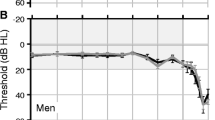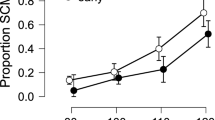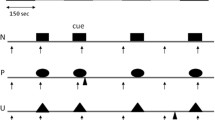Abstract
In the present study, we assessed the effects of the potent benzodiazepine alprazolam on the human acoustic startle response in healthy volunteers. Eight undergraduate students received single oral doses of placebo and alprazolam 2 mg on 2 separate days, according to a double-blind balanced crossover design. Electromyographic activity of the orbicularis oculi muscle was recorded 5, 7 and 11 h after drug administration. At each recording time, subjects received 21 acoustic stimuli (1 KHz, 116 dB, 50 ms duration) separated by variable intervals (8–30 s, mean 16.5 s). Consistent with previous results obtained for diazepam in humans, alprazolam significantly reduced the amplitude of the startle reflex. A patent increase in onset latency was also observed, this being a novel effect not previously described for benzodiazepines in human studies. Both effects were maximum at 5 h after dosing, the startle response experiencing a recovery as the drug disappeared from systemic circulation. These results indicate a potent inhibitory effect of alprazolam on baseline startle at the dose used, with a robust time-dependent recovery of initial values effectively counteracting between-session habituation.
Similar content being viewed by others
Author information
Authors and Affiliations
Additional information
Received: 28 July 1998/Final version: 17 November 1998
Rights and permissions
About this article
Cite this article
Rodríguez-Fornells, A., Riba, J., Gironell, A. et al. Effects of alprazolam on the acoustic startle response in humans. Psychopharmacology 143, 280–285 (1999). https://doi.org/10.1007/s002130050948
Issue Date:
DOI: https://doi.org/10.1007/s002130050948




